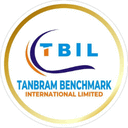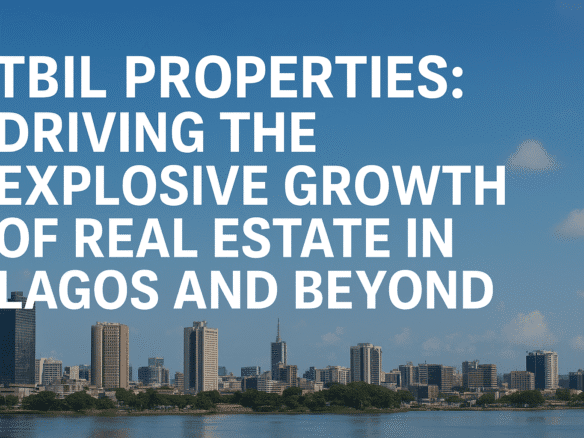As Nigeria’s financial sector gears up for a new wave of recapitalization, real estate investors are watching closely. In March 2024, the Central Bank of Nigeria (CBN) announced a major policy shift: all commercial banks must meet a significantly higher minimum capital requirement by March 2026. This development has triggered widespread speculation about its potential effects — especially in industries like real estate, where banking liquidity and access to credit play a crucial role.
In this article, we explore how the recapitalization mandate could reshape the Nigerian real estate investment landscape in 2025 and beyond — from mortgage accessibility to investor confidence, property development funding, and market dynamics.
Let us start with What Is Bank Recapitalization?
Recapitalization is a financial strategy where a bank increases its capital base to enhance its financial strength, meet regulatory standards, and absorb economic shocks. In Nigeria’s case, the CBN now requires banks to raise their capital base to:
-
₦500 billion for international banks
-
₦200 billion for national banks
-
₦50 billion for regional banks
This move aims to stabilize the financial system amid rising inflation, naira volatility, and global financial uncertainty.
But what does this mean for Nigeria’s real estate sector?
1. Improved Mortgage Accessibility for Buyers
One of the most direct impacts of recapitalization will be on the mortgage sector. For years, Nigerian homebuyers have faced stiff challenges in securing long-term, low-interest housing loans due to weak bank liquidity and underperforming mortgage institutions.
In 2025, recapitalized banks are likely to:
-
Inject more funds into retail lending products, including mortgages
-
Offer better interest rates due to enhanced capital buffers
-
Partner more aggressively with the Nigeria Mortgage Refinance Company (NMRC)
-
Develop innovative mortgage solutions for salaried workers and diaspora buyers
Result: First-time buyers and middle-income earners could finally access long-term home financing options previously out of reach.
“With bigger capital reserves, banks will be more willing to take on real estate risk and support long-term lending,” says a Lagos-based property finance analyst.
2. Renewed Confidence from Foreign and Diaspora Investors
Nigeria’s property sector has long attracted attention from diaspora Nigerians and foreign investors looking for high-yield returns. However, concerns about macroeconomic stability and currency risk often discouraged long-term commitments.
Bank recapitalization may trigger a renewed wave of investor confidence by:
-
Strengthening the financial ecosystem
-
Stabilizing the naira through increased forex reserves
-
Attracting foreign direct investment (FDI) into real estate development
-
Lowering capital flight fears associated with weak bank solvency
Opportunities:
-
Joint venture real estate developments in Abuja, Lagos, and Port Harcourt
-
Buy-to-let properties targeting short-term rental markets
-
Co-investment models for gated estates and mixed-use developments
3. Boost to Construction Financing and Developer Capital Access
Recapitalization is also expected to improve bank appetite for project financing, especially in high-growth corridors like the Lekki-Epe axis, Abuja suburbs, and emerging regional cities (e.g., Uyo, Enugu, Asaba).
Historically, many developers have relied on private equity or off-plan sales due to banks’ reluctance to finance large projects.
In 2025, recapitalized banks could:
-
Expand loan books toward construction finance
-
Offer structured finance options for mixed-use or affordable housing projects
-
Partner with public-private development initiatives
-
Support green building innovations tied to sustainability targets
“Access to cheaper, longer-term credit will enable developers to scale without over-relying on volatile sales-based funding,” explains a developer in Abuja.
4. Likely Surge in Real Estate Prices
Increased mortgage access and credit availability, demand for residential and commercial property is expected to rise in 2025.
While this will benefit sellers and landlords, it may also drive up property prices, especially in prime locations.
What to expect:
| Segment | Expected Impact |
|---|---|
| Urban land | Up to 20% rise in value |
| Affordable housing | Increased demand |
| Luxury properties | Uptick from diaspora and HNIs |
| Commercial real estate | Growth tied to fintech and logistics demand |
Advice to investors: Secure property in high-growth areas before price escalations peak.
5. Increased M&A Activity Among Banks May Delay Some Lending Decisions
One short-term downside to watch is the potential slowdown in banking operations due to mergers and acquisitions (M&A) as banks race to meet CBN’s recapitalization deadline.
This may temporarily cause:
-
Slower mortgage processing in affected banks
-
Loan approval delays for developers
-
Internal restructuring that affects customer service
Mitigation strategy: Work with well-capitalized, stable banks and consider non-bank real estate financing options (e.g., cooperative funds, fintech lenders).
Key Regions That Will Benefit the Most
Certain regions stand to gain significantly from the real estate resurgence:
-
Lagos: High demand for shortlets, mixed-use buildings, and waterfront property
-
Abuja: Government-backed housing, diaspora interest, and growing infrastructure
-
Ogun & Oyo States: Affordable estates for Lagos spillover buyers
-
Port Harcourt & Uyo: Emerging middle-class housing needs and oil sector rebirth
-
Diaspora-friendly zones: Areas with property management services and rental guarantees
What Real Estate Stakeholders Should Do in 2025
For Homebuyers:
-
Start the mortgage pre-approval process early
-
Watch interest rate trends and central bank announcements
-
Consider buying off-plan to lock in lower prices
For Real Estate Developers:
-
Prepare investor-ready proposals for banks
-
Formalize project documentation to meet lending standards
-
Explore green building certifications for access to sustainability-linked funding
For Agents and Brokers:
-
Educate clients about new mortgage possibilities
-
Build partnerships with recapitalized banks
-
Focus marketing on high-demand areas and emerging buyer segments
A New Dawn for Real Estate Finance in Nigeria Because of Nigerian bank recapitalization?
Nigerian bank recapitalization is more than just a banking story — it’s a transformational event for the entire economy, especially the real estate sector.
With more capital available for lending, stronger investor confidence, and better financial products for homebuyers, 2025 could usher in a new era of growth, innovation, and affordability in Nigeria’s real estate industry.
Are you ready to take advantage of these upcoming changes?






Join The Discussion